Word Problems Worksheets for Ages 4-5
107 filtered results
-
From - To
Introducing our School Downloadable Worksheets, expertly crafted for children aged 4-5 years! Designed to ignite curiosity and enhance early math skills, these worksheets focus on word problems that blend learning with fun. Each sheet is tailored to help young learners develop critical thinking and problem-solving abilities through engaging scenarios that they can relate to. Perfect for both classroom and home use, these worksheets are easily accessible and ready to print, providing a convenient, high-quality educational resource. Help your little ones build a strong foundation in math with our delightful word problems worksheets. Dive into learning today!
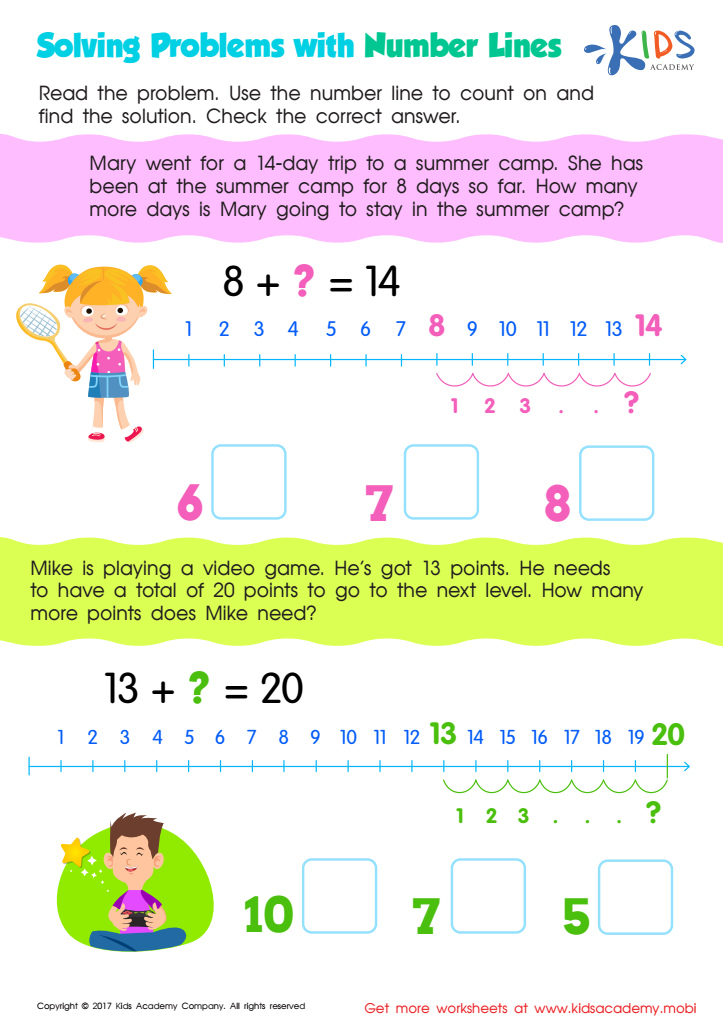

Solving Problems: Number Lines Worksheet
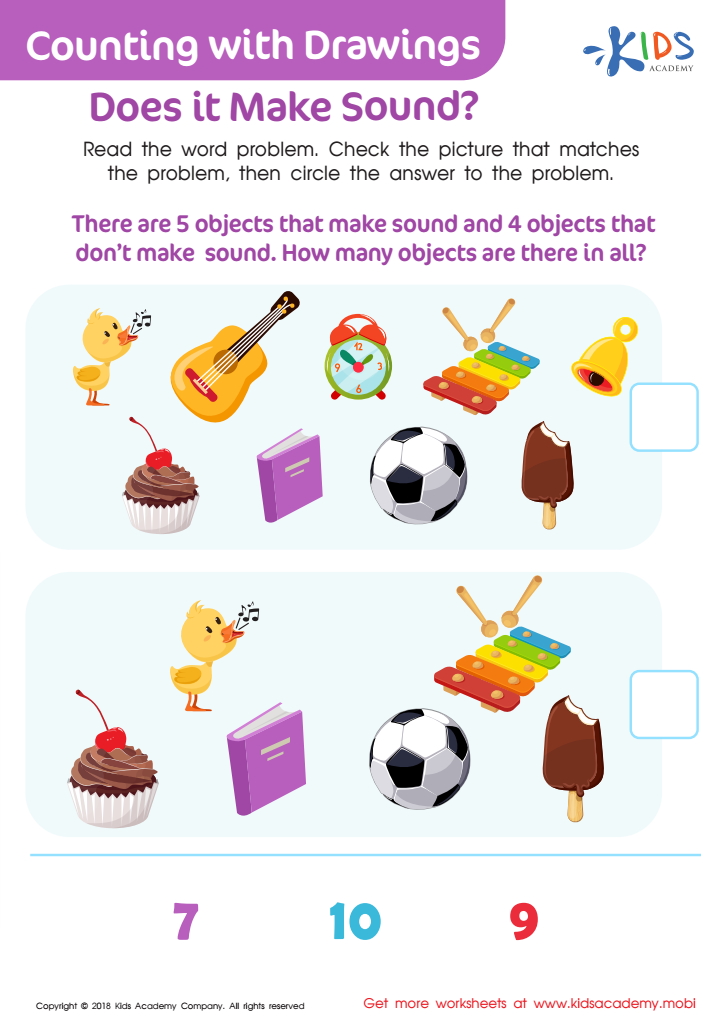

Counting With Drawings. Does It Make Sound? Worksheet
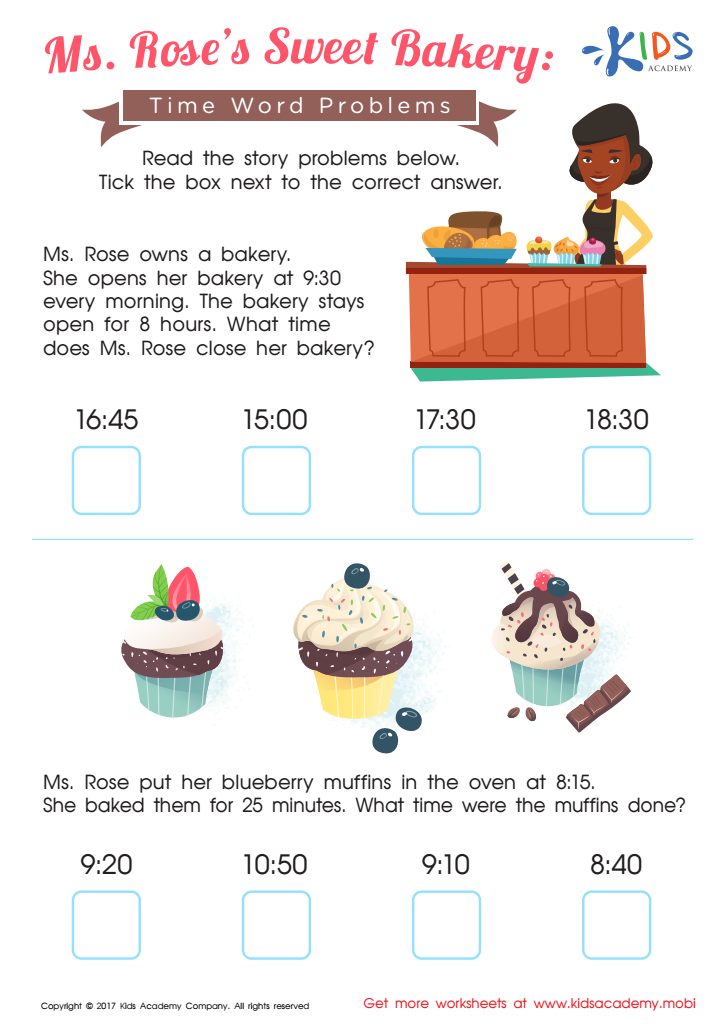

Ms. Roseв's Sweet Bakery Time Worksheet
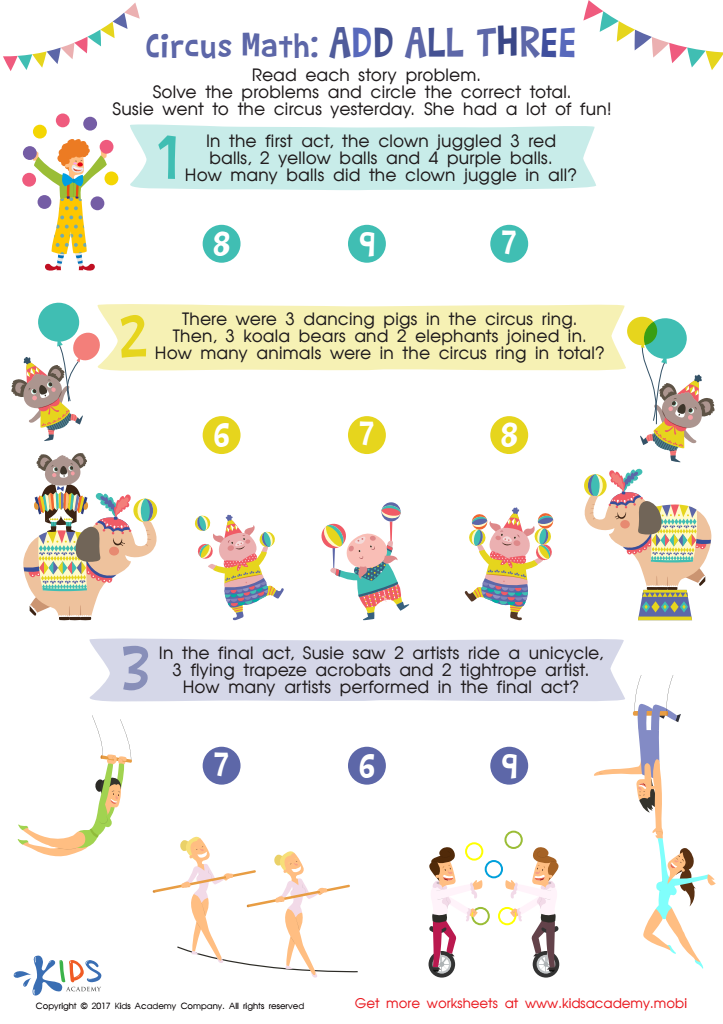

Circus Math Printable
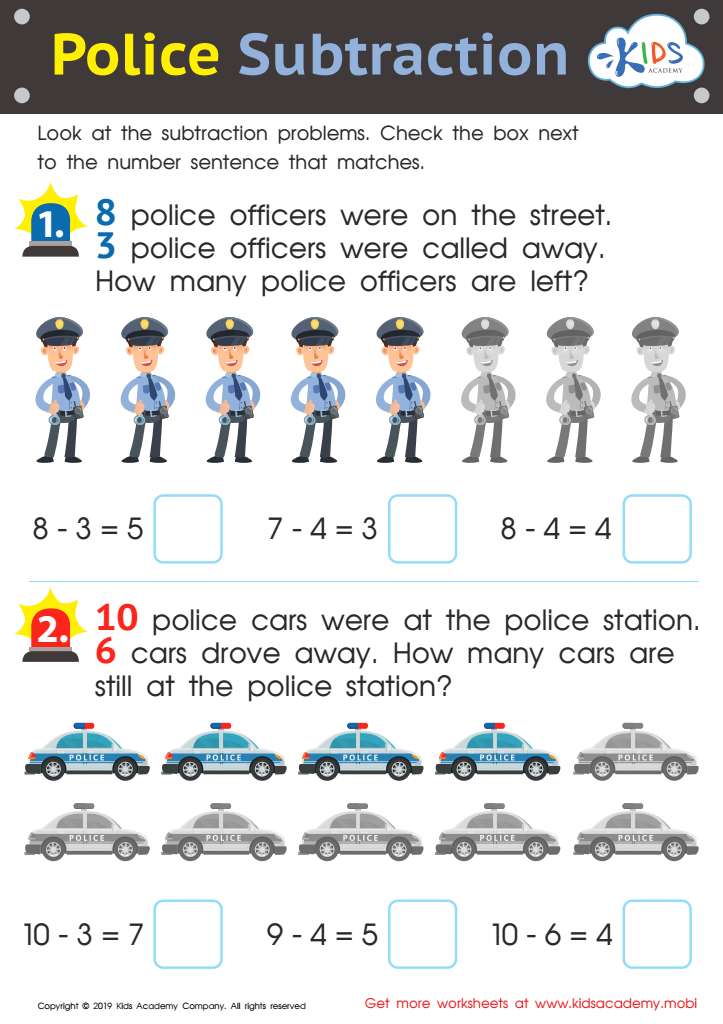

Police Subtraction Worksheet
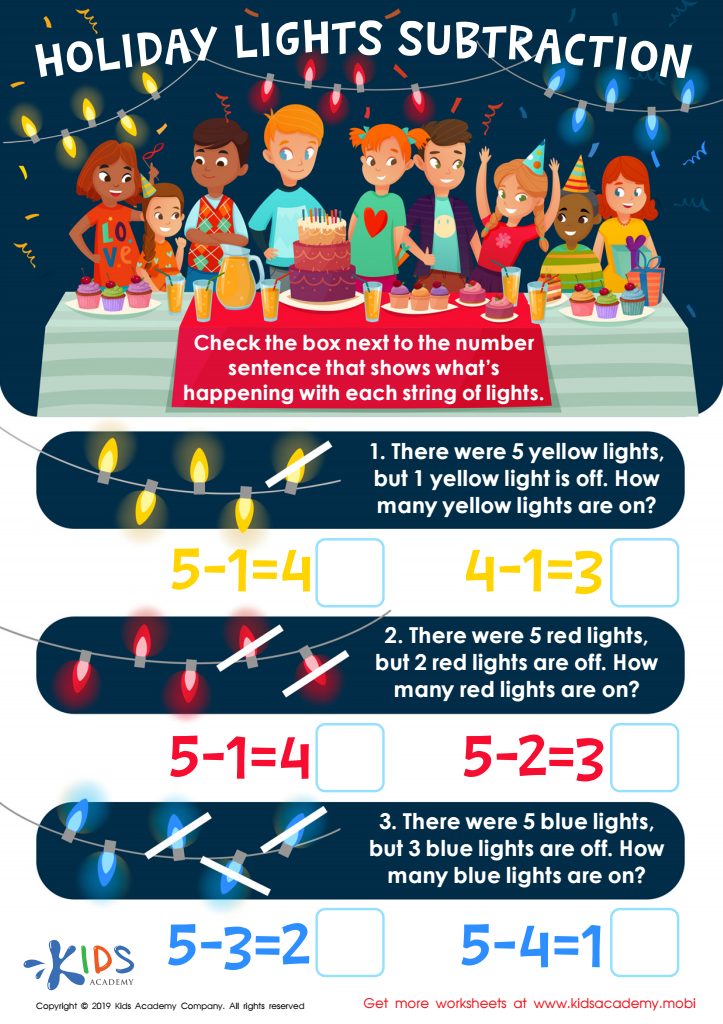

Holiday Lights Subtraction Worksheet
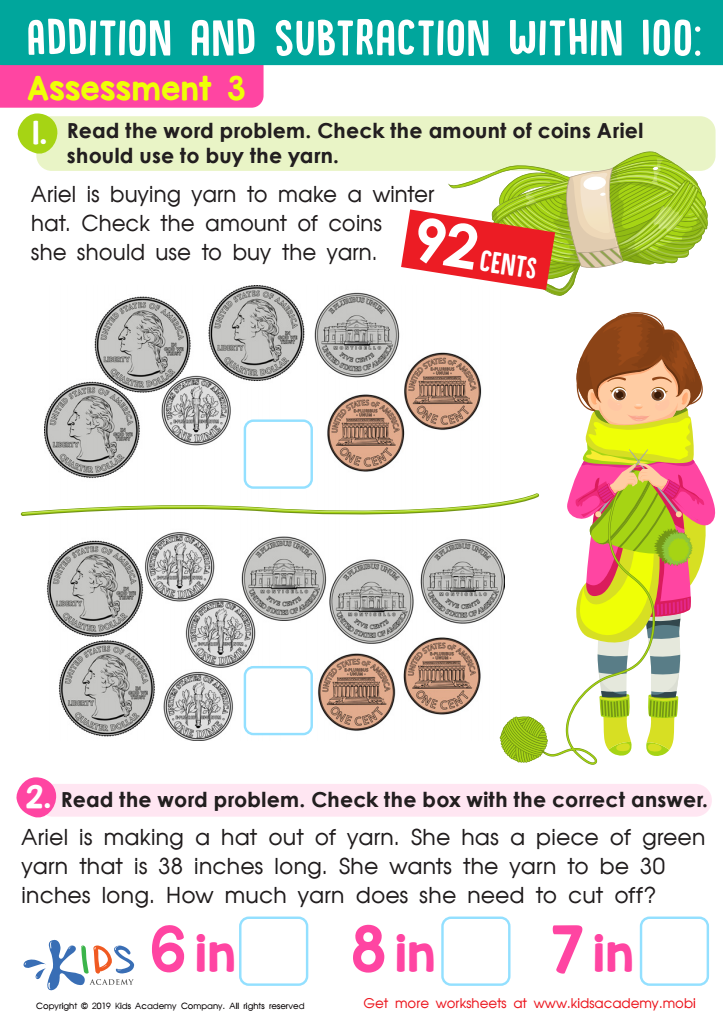

Assessment 3 Math Worksheet


Tricky Problems Worksheet: Part 1
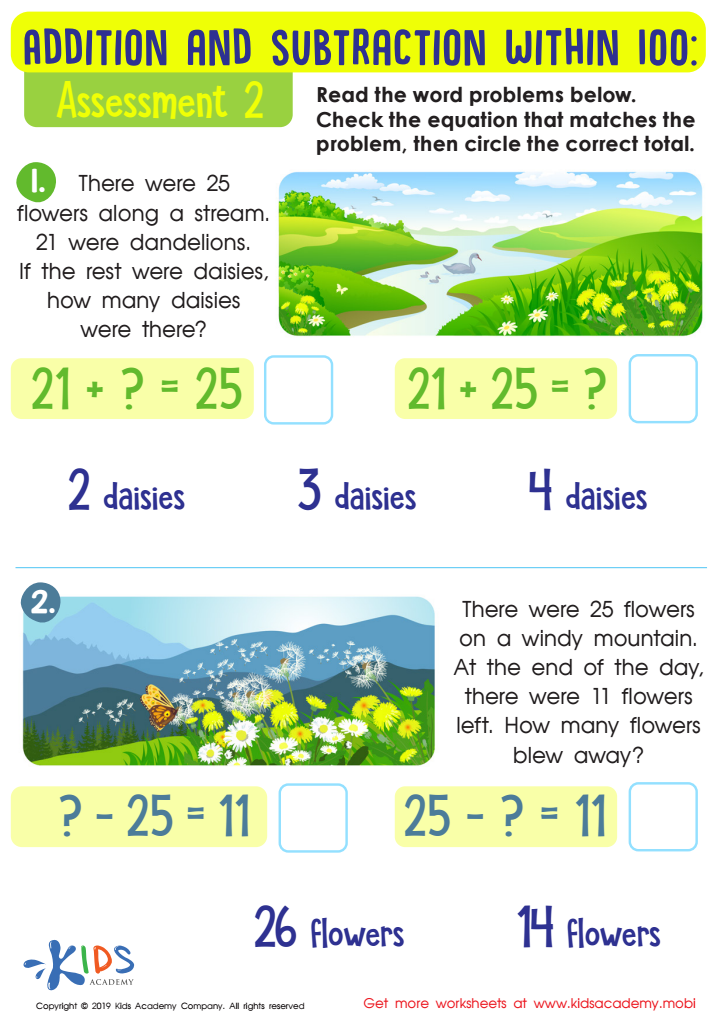

Assessment 2 Math Worksheet
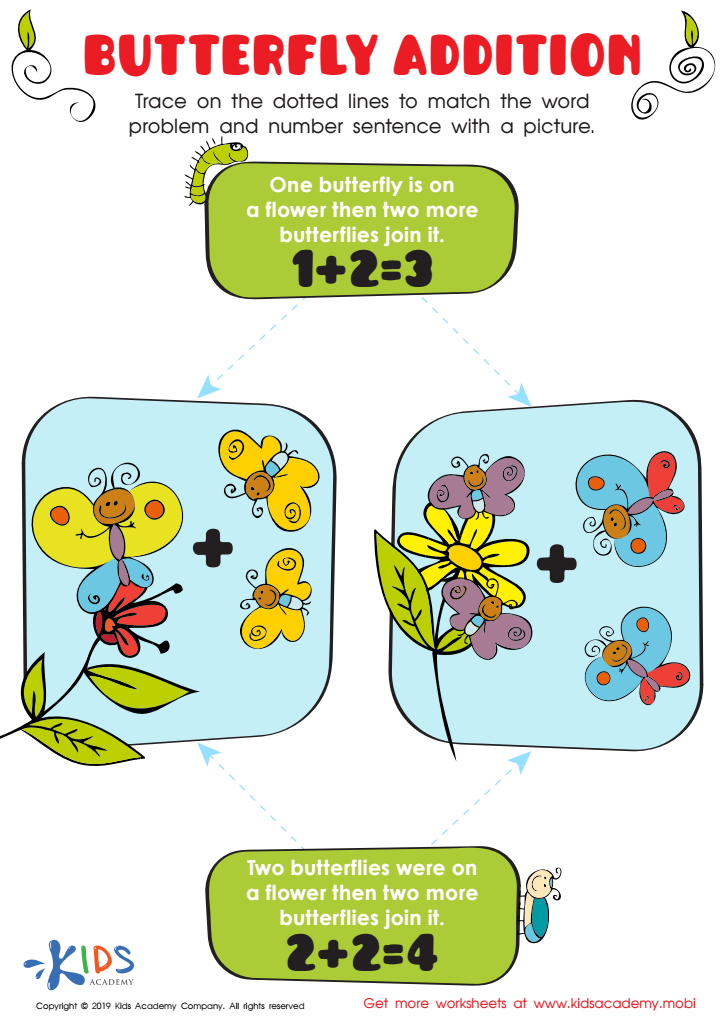

Butterfly Addition Worksheet
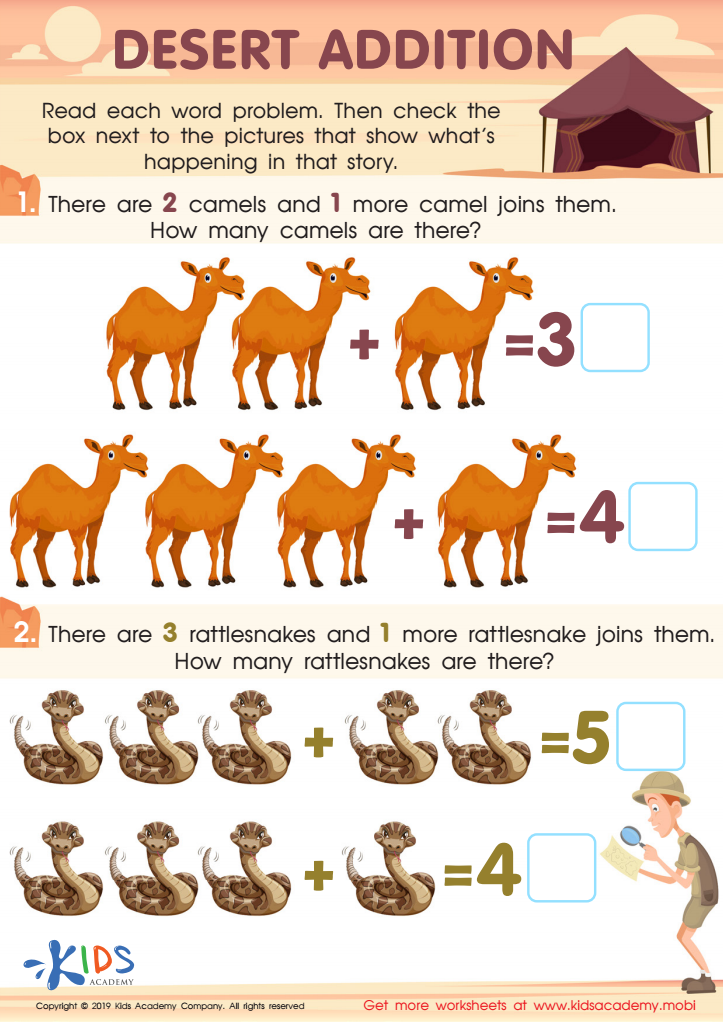

Desert Addition Worksheet
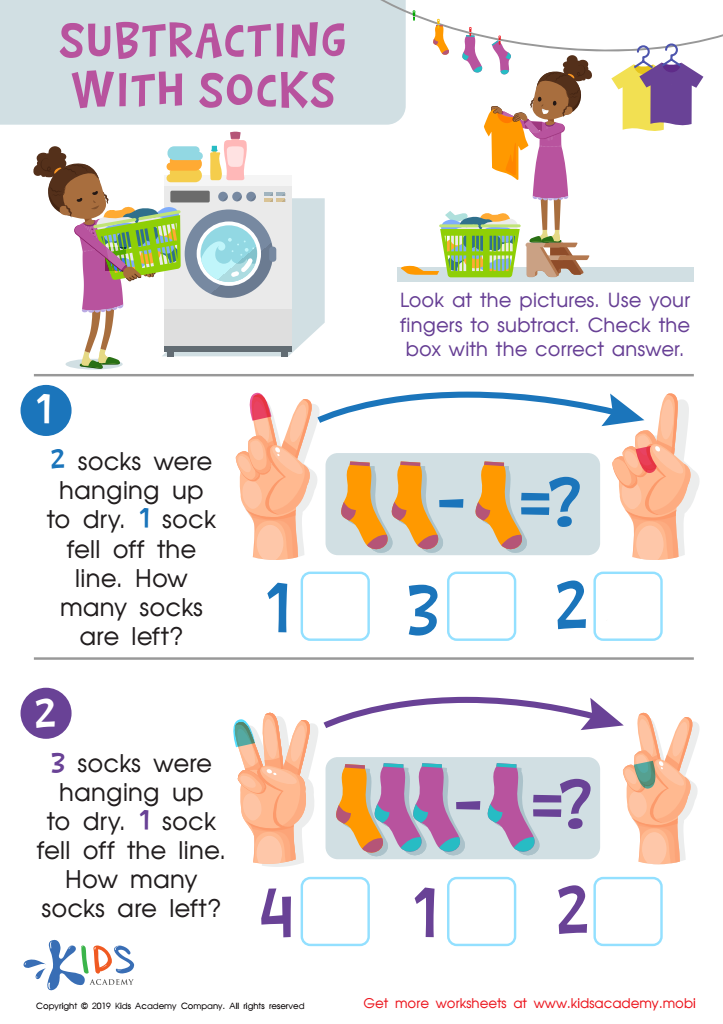

Subtracting Socks Worksheet
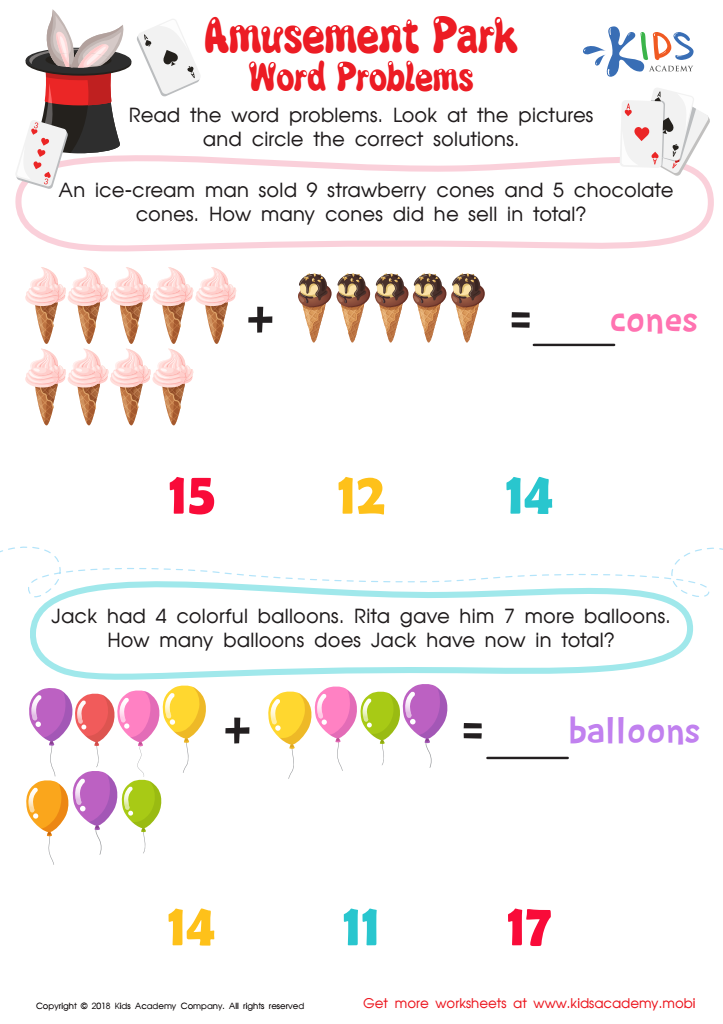

Amusement Park Word Problems Worksheet
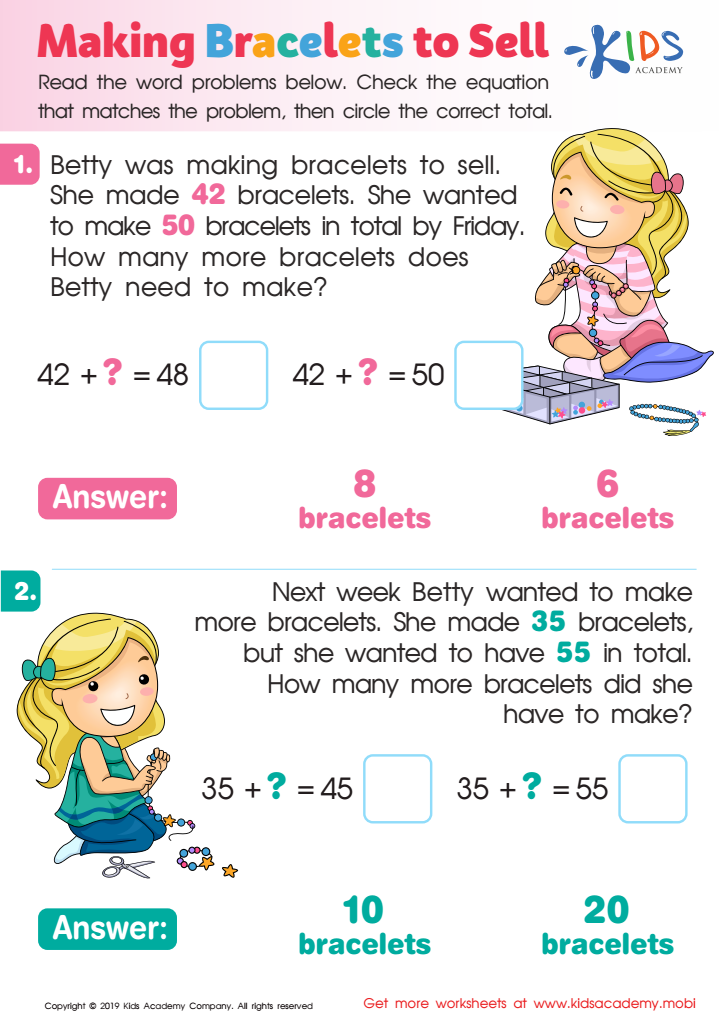

Making Bracelets to Sell Worksheet
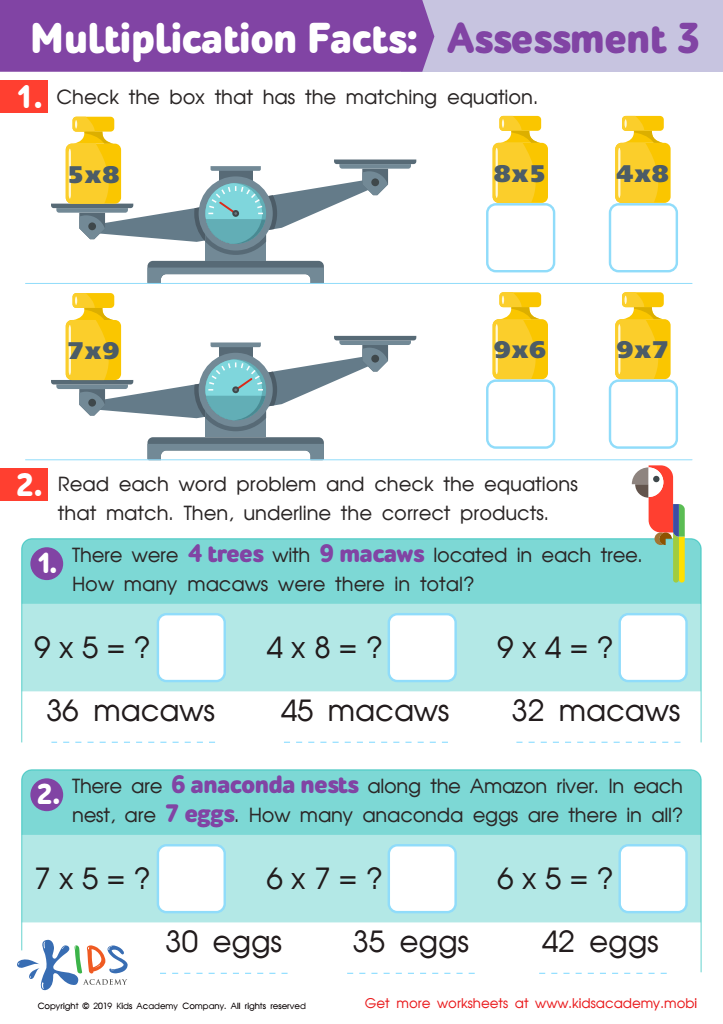

Multiplication Facts: Assessment 3 Worksheet
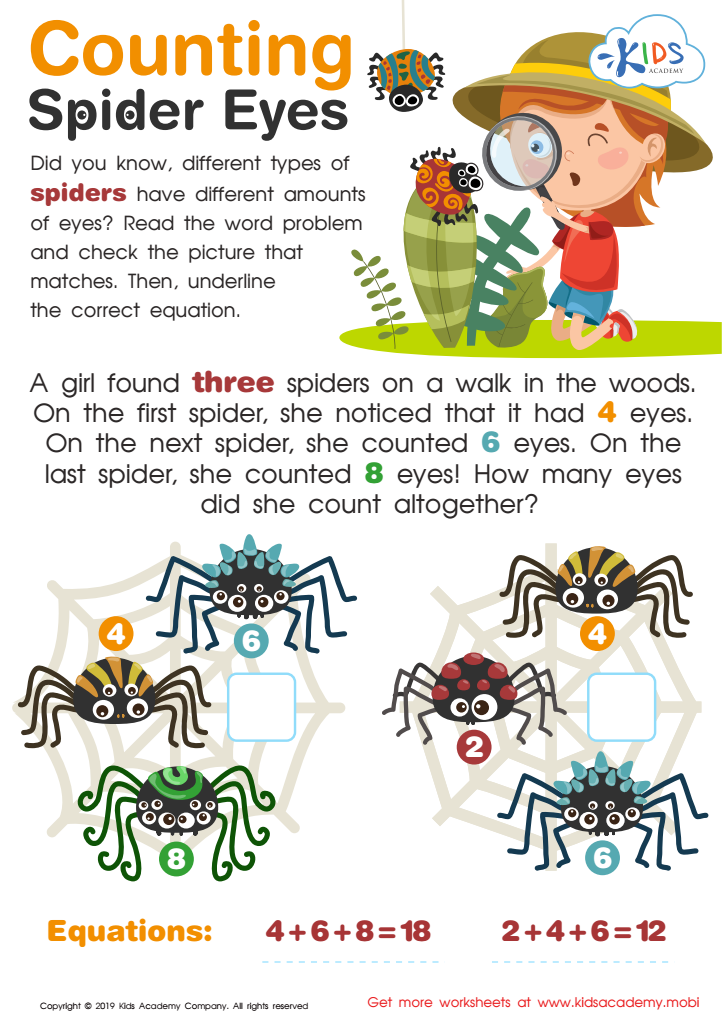

Counting Spider Eyes Worksheet
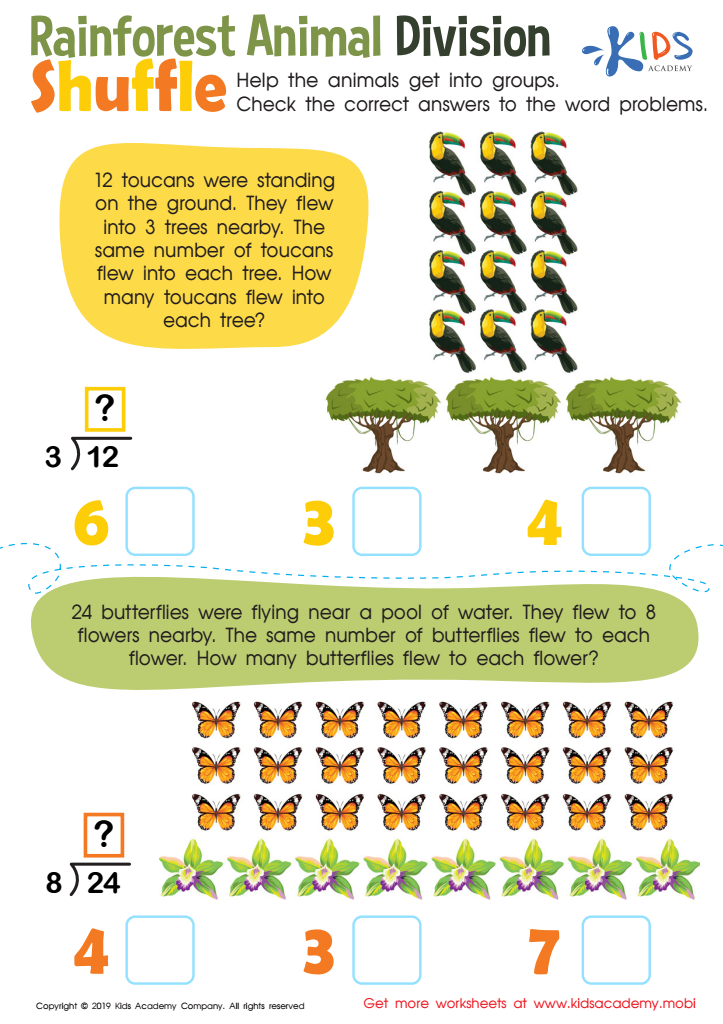

Rainforest Animal Division Worksheet


Counting Seedlings Worksheet


Enrichment -2 Step Word Problems Worksheet
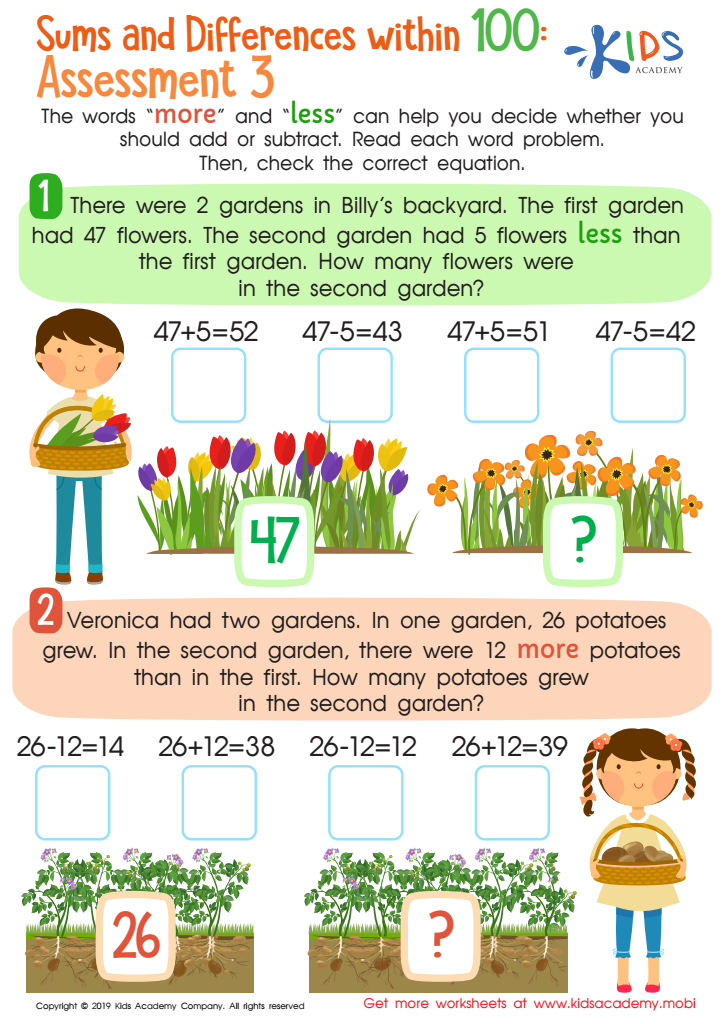

Sums and Differences Within 1 - Assessment 1 Worksheet
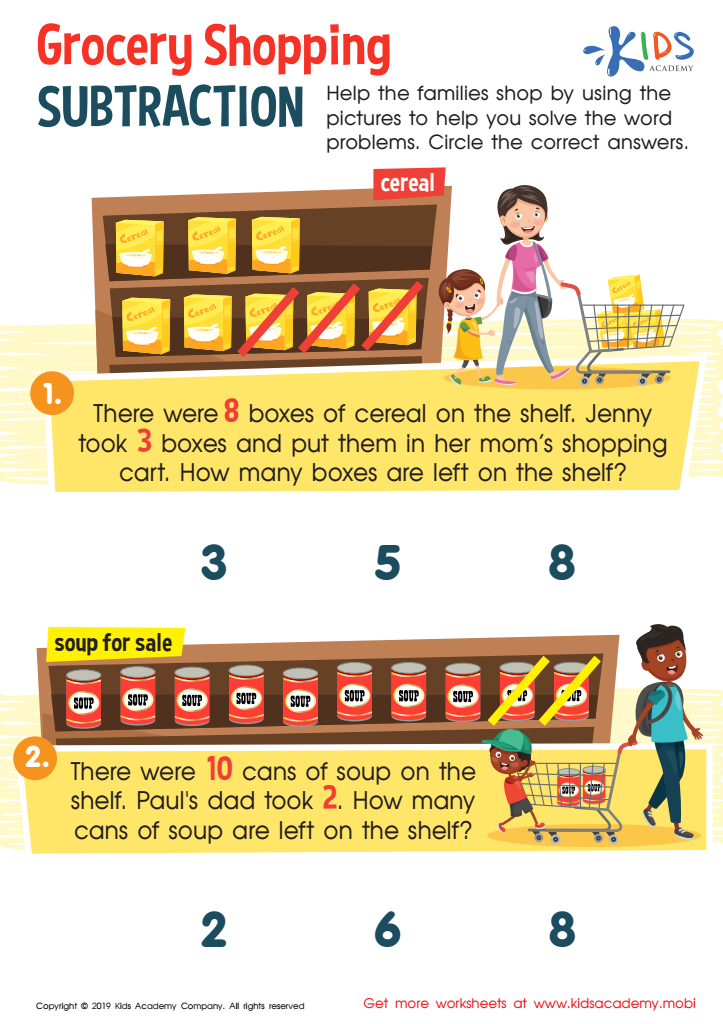

Grocery Shopping Subtraction Worksheet
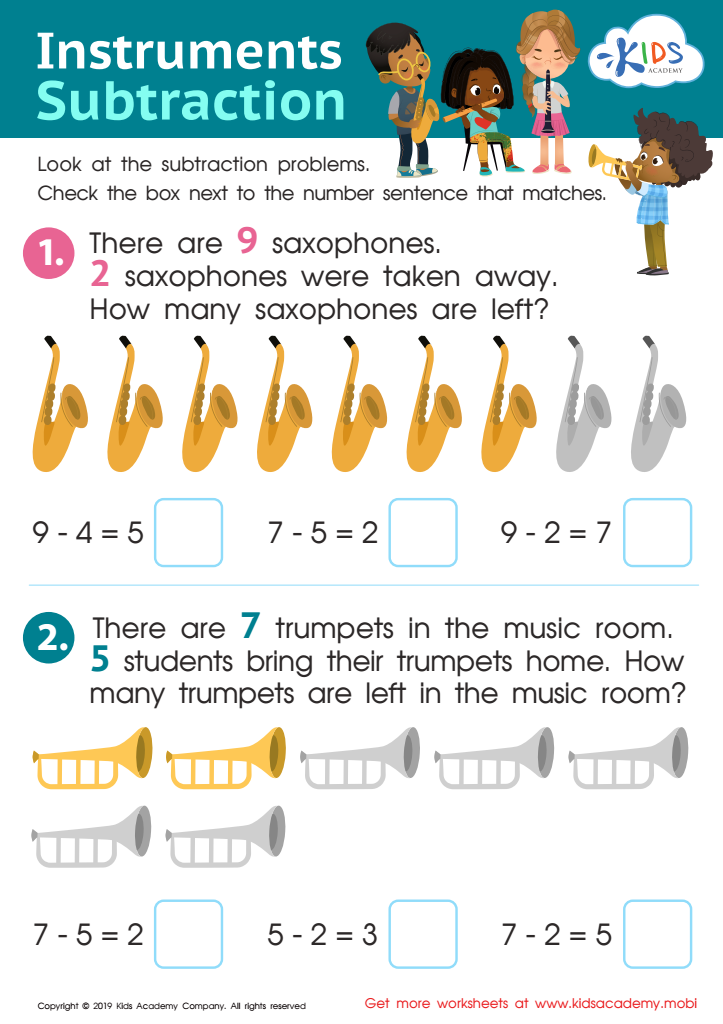

Instrument Subtraction Worksheet
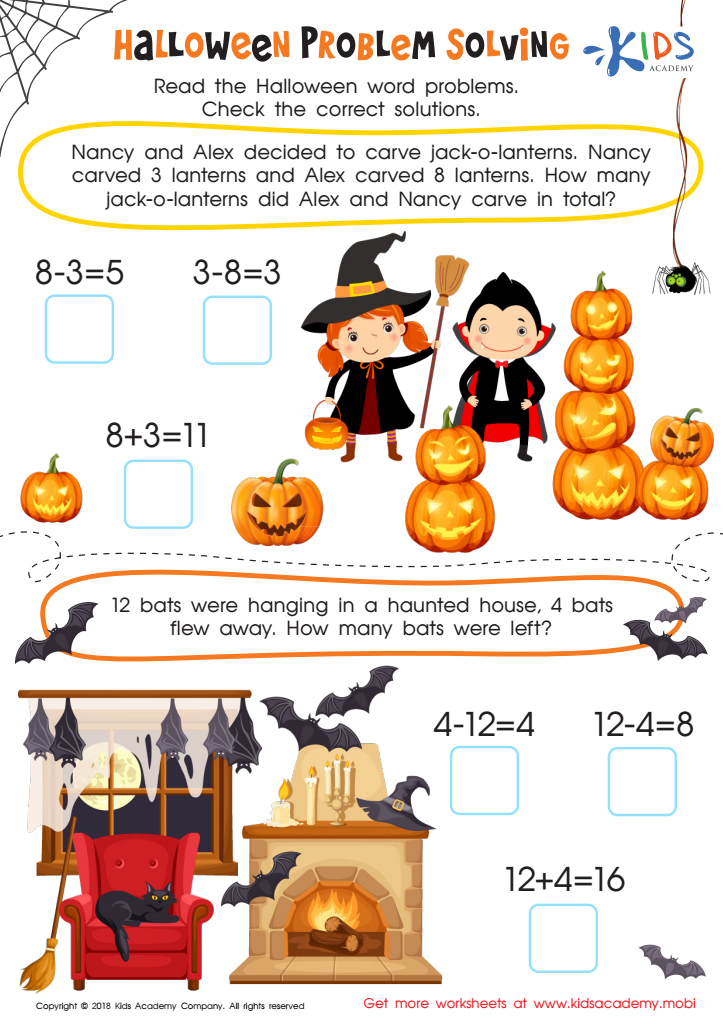

Halloween Problem Solving Worksheet
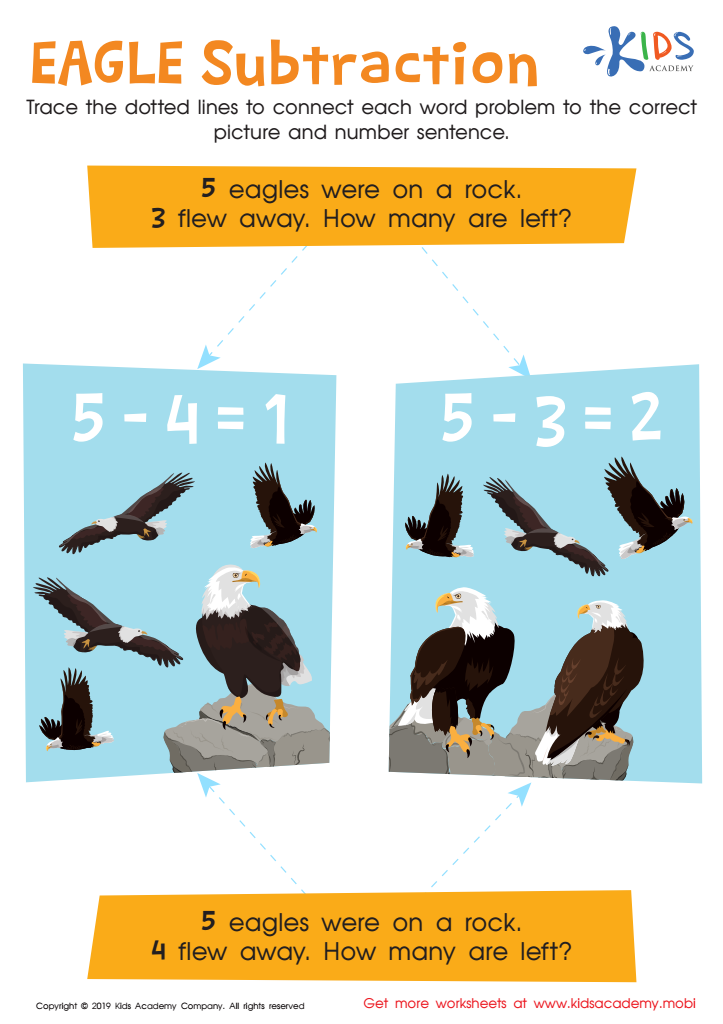

Eagle Subtraction Worksheet
Why Worksheets on Word Problems are Essential for Children Aged 4-5
As children embark on their educational journey, the foundation we lay in the early years is crucial for their long-term academic success. When it comes to mathematics, understanding comes not just from numbers, but also through solving word problems. This is where school homework sheets focused on word problems play a pivotal role, especially for children aged 4 to 5 years.
Word problems are a key component in developing a child's mathematical thinking because they require more than just computation. They challenge students to read, comprehend, and then apply the right operations to find a solution. For young learners, this not only boosts their numeracy skills but also enhances their reading comprehension and problem-solving abilities. Here’s why incorporating word problems into school homework sheets is invaluable for young children:
-
Enhances Reading and Comprehension Skills: At ages 4 to 5, children are just beginning to develop their reading skills. Word problems on school homework sheets require children to read and understand the context of a problem. This dual requirement of decoding text and grasping mathematical concepts helps in enhancing both their literacy and numerical abilities.
-
Introduces Real-World Math: Word problems are often structured around real-life scenarios, making math relevant to the everyday lives of young children. This helps them understand why they are learning what they’re learning and how it applies outside the classroom. When children see the practical application of math, it boosts their interest and engagement.
-
Develops Critical Thinking and Problem-Solving Skills: Unlike straightforward calculation problems, word problems require thought, as children must decide what operations to use and how to use them. This nurtures critical thinking and problem-solving skills, which are essential for academic success across all subjects.
-
Boosts Confidence and Independence: Successfully solving word problems can significantly boost a young child’s confidence. School homework sheets provide a safe space for children to practice and make mistakes without the fear of public failure. Over time, as they master the skills of tackling word problems, their independent learning abilities grow.
-
Supports Cognitive Development: Engaging with word problems involves memory, reasoning, and logic. These are all cognitive skills that, when developed from an early age, can enhance a child’s ability to think abstractly and approach problems creatively.
-
Prepares for Future Academic Demands: Early exposure to word problems prepares children for the more complex mathematical concepts and problems they will encounter in later grades. As curricula evolve to include more multifaceted math problems, early familiarity with the basics will set them up for success. This gradual building of skills makes the transition through educational stages smoother and less intimidating.
-
Encourages Parental Involvement: When children bring home school homework sheets, it provides an excellent opportunity for parents to get involved in their child's learning process. Working together on word problems can help strengthen the bond between parent and child, and gives parents insight into their child’s learning style and progress. This involvement is crucial, as it reinforces learning at home and enables parents to contribute positively to their child's educational journey.
-
Fosters a Love for Math: Early positive experiences with mathematics can foster a lifelong interest and love for the subject. By presenting math through engaging word problems, school homework sheets can help dispel the notion that math is dull or overly challenging. Instead, they show young learners that math can be a fun, intriguing puzzle to solve.
-
Adaptable to Individual Learning Styles: Children have different learning styles and paces. School homework sheets can be designed to cater to these individual needs, providing different types of word problems that range from simple to more complex, thereby supporting differentiated learning. This ensures that every child can progress at their own pace while still being challenged.
-
Immediate Feedback and Reinforcement: Teachers can use these worksheets not only as a teaching tool but also as a way to provide immediate feedback. Corrections and guidance can be given as soon as a child completes their homework, reinforcing learning and correcting misunderstandings promptly. This immediate feedback loop helps children learn from their mistakes and understand concepts more deeply.
In conclusion, incorporating word problems in school homework sheets for children aged 4 to 5 is more than just a teaching strategy; it is an essential building block in their educational development. These problems sharpen a variety of skills simultaneously—from numeracy to literacy, from logical thinking to problem-solving. As such, regular practice with word problems can play a significant role in setting young learners on the path to academic success and a bright future.
 Assign to the classroom
Assign to the classroom












